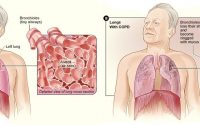Acute Effects of Myofascial Stretching on Multiple Sclerosis Patients
Objective: The study from Turkey aimed to evaluate the immediate impact of myofascial stretching exercises on spasticity, balance, ambulation status, and the mobility of posterior chain muscles in individuals with multiple sclerosis (MS).
Method: This randomized controlled trial included 80 MS patients, with a mean age of 43.5 years in the experimental group and 41.4 years in the control group. Each participant underwent a single treatment session and was assessed before and after the session. Assessments included spasticity (Modified Ashworth Scale – MAS), balance (Berg Balance Scale – BBS), ambulation status (Timed Up and Go Test – TUG), and posterior chain muscle mobility (PCMM) using the finger-to-ground distance measurement.
Results:
- Ambulation (TUG Test): The experimental group showed a significant improvement in ambulation time compared to the control group (p < 0.05).
- Posterior Chain Muscle Mobility (PCMM): The experimental group had significantly lower PCMM measurements before treatment and showed a greater positive change after treatment compared to the control group (p < 0.05).
- Spasticity (MAS): The experimental group demonstrated a reduction in spasticity in the left knee compared to the control group (p < 0.05).
- Balance (BBS): There was no significant difference in balance improvement between the groups.
Conclusion: Myofascial stretching exercises provided acute benefits to the ambulation status and mobility of posterior chain muscles in MS patients. However, these exercises did not show a significant effect on overall spasticity and balance.
